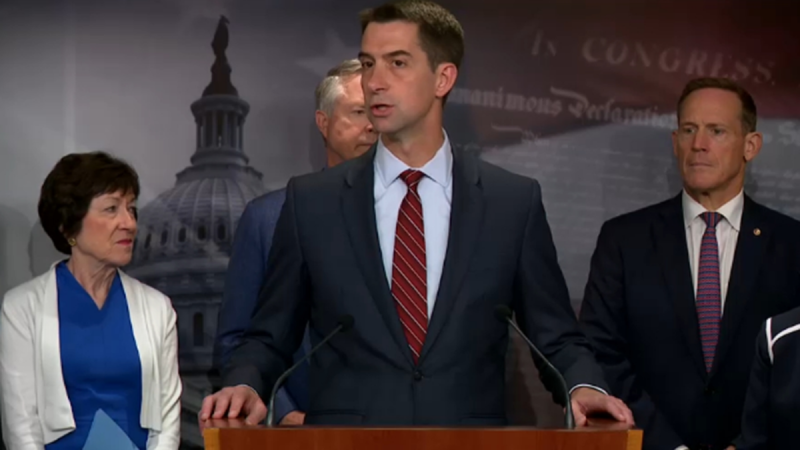In a recent statement, Senator Tom Cotton suggested that if former President Donald Trump were still in office, the conflict between Israel and Hamas would likely have been resolved already. This assertion raises questions about the role of leadership in managing international crises, particularly in the context of longstanding conflicts such as the Israel-Palestine issue. While some may find Senator Cotton’s comments controversial, it is crucial to examine the potential impact of different leadership styles on diplomatic negotiations and conflict resolution.
One key aspect of Trump’s approach to foreign policy was his willingness to disrupt traditional norms and engage directly with leaders of conflicting parties. During his tenure, Trump pursued a more transactional and personal diplomacy style, often opting for direct conversations with world leaders rather than relying solely on traditional diplomatic channels. This unorthodox approach was exemplified by Trump’s decision to broker deals like the Abraham Accords between Israel and several Arab nations, which aimed to normalize relations and promote peace in the Middle East.
Critics of Trump’s foreign policy approach argue that his unpredictability and disregard for established diplomatic protocols could have unintended consequences and undermine the credibility of the United States as a mediator in international conflicts. However, supporters believe that Trump’s willingness to take bold steps and challenge the status quo could lead to breakthroughs in long-standing disputes, such as the Israel-Palestine conflict.
In the case of the current Israel-Hamas conflict, Senator Cotton’s comments imply that Trump’s direct engagement and transactional diplomacy style might have provided a more decisive and expedited path to resolving the crisis. Trump’s close relationship with Israeli Prime Minister Benjamin Netanyahu and his administration’s staunch support for Israel could have potentially influenced the dynamics of the conflict and pressured Hamas to agree to a ceasefire sooner.
It is important to note that the resolution of conflicts like the Israel-Palestine issue is a complex and multifaceted process that involves historical grievances, geopolitical interests, and deep-rooted animosities. While leadership plays a significant role in shaping diplomatic efforts and negotiation strategies, the underlying causes of conflicts cannot be overlooked or easily resolved through individual leadership styles alone.
In conclusion, Senator Tom Cotton’s assertion that the Israel-Hamas conflict would likely have been over by now if Trump were still president underscores the significance of leadership in managing international crises. Trump’s unconventional approach to diplomacy may have offered a different perspective on conflict resolution, but it is essential to consider the broader context and complexities of the Israel-Palestine issue. As the world continues to grapple with ongoing conflicts and challenges, thoughtful analysis and a nuanced understanding of leadership’s impact on diplomatic efforts are crucial for advancing peace and stability on the global stage.

